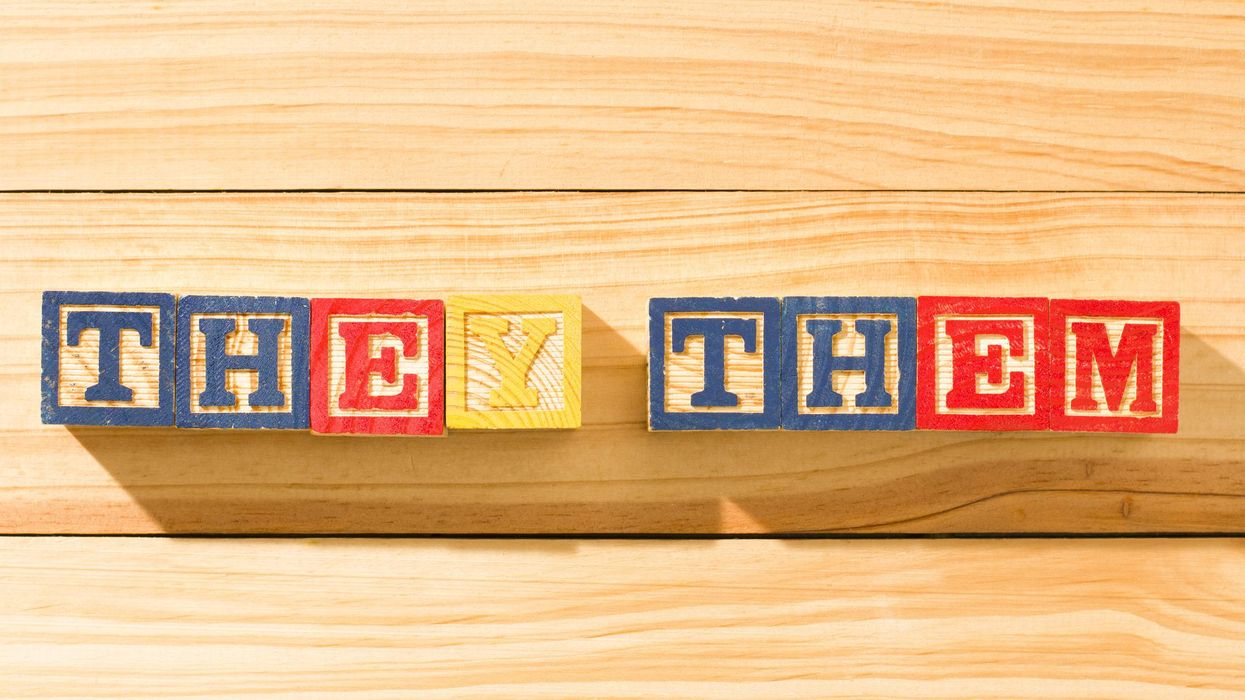
Alexander Sanchez/iStock/Getty Images Plus

How slippery is that slope? Apparently, not abiding by someone's "preferred pronouns" is now a human rights violation.
Jessie Nelson — whom the CBC described as "a non‐binary, gender fluid, transgender person who uses they/them pronouns" — was hired in 2019 as a server at a restaurant in Gibsons, British Columbia, a town not far from the northern United States border.
In a complaint, Nelson alleged that some of the restaurant staff was hostile. The bar manager Brian Gobelle reportedly refused to use Nelson's preferred pronouns, instead using "she," "her," and other feminine names that are commonly used toward women. The situation reportedly boiled over just several days into Nelson's employment, resulting in Nelson's firing just four weeks after beginning work at the restaurant.
The restaurant owner reportedly told Nelson that the server had come off "too strong too fast," was "militant," had made people uncomfortable, and were not working well with the existing restaurant team.
Nelson later alleged discrimination on the basis of "gender identity and expression," the CBC reported.
The British Columbia Human Rights Tribunal handed down a decision last month finding the restaurant violated Nelson's human rights by not intervening quickly enough to ensure that staff used Nelson's preferred pronouns.
The tribunal also said Gobelle discriminated against Nelson.
In a 42-page ruling, tribunal member Devyn Cousineau said that "pronouns are a fundamental part of a person's identity."
"Using correct pronouns communicates that we see and respect a person for who they are," Cousineau wrote. "Especially for trans, non‐binary, or other non‐cisgender people, using the correct pronouns validates and affirms they are a person equally deserving of respect and dignity."
"When people use the right pronouns, they can feel safe and enjoy the moment," Cousineau added. "When people do not use the right pronouns, that safety is undermined and they are forced to repeat to the world: I exist."
Cousineau also awarded Nelson $30,000 in damages, one-third of which would be paid by Gobelle; the other two-thirds would be paid by the restaurant owners.
Cousineau also ordered "mandatory training for all staff and managers about human rights in the workplace" for the restaurant and told restaurant owners to update their employee policies to include a statement "that affirms every employee's right to be addressed with their correct pronouns."
Perhaps someone should lend Cousineau a basic linguistics textbook.
Despite Cousineau claiming that "pronouns are a fundamental part of a person's identity," pronouns are merely grammatical devices used in language to refer to nouns or noun phrases that have either been stated already or are assumed by context.
Pronouns, in fact, almost always have an antecedent, which is made clear by the context in which the pronoun is used.
In theory, languages do not need personal pronouns (I, me, you, he, him, she, her, it, we, us, they, them), the type of pronoun in contention here (as opposed to demonstrative or interrogative pronouns, for example). Many highly inflected languages, in fact, mostly use personal pronouns for emphatic purposes because verbal morphology encodes person and number (1st, 2nd, 3rd person and singular or plural). Using a personal pronoun becomes redundant.
English used to be highly inflected (Old English), but grammatical gender, cases, and complex verb conjugation dropped from the language over time. Because English verbs no longer encode person, it has thus become necessary to regularly use personal pronouns to clarify agency.
Personal pronouns, then, are not "fundamental" to a person's identity, dignity, or human rights.